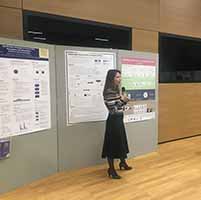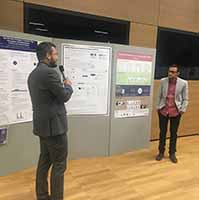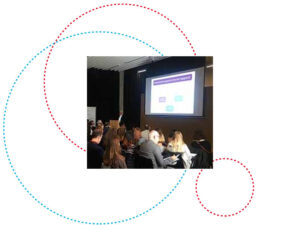The Institute for Health and Behaviour hosted a conference on 7 November to give their researchers and doctoral candidates the opportunity to present their research projects to the public. The institute investigates how behaviour affects health and how behaviour is affected by the social environment.
Based on the research outcomes, interventions to change human behaviour are developed to improve individual and public health. Professor Andrew Steptoe from University College London, one of Britain’s leading health psychologists, provided the keynote address “Social relationships, loneliness and health”. Professor Steptoe discussed different studies investigating the correlation between the lack of social interactions, loneliness, health and psychological well-being.
In the afternoon, the researchers of the Institute of Health and Behaviour gave an account of their research activities. The presentations reflected the wide range of topics covered by the institute as well as the interdisciplinary character of research in health and behaviour.
Research is as diverse as the institute and combines knowledge from psychology to biology and economics. Ongoing research includes topics such include health promotion at the workplace, violence in schools and in the media, financial insecurity and social well-being, substance use disorders and behavioural addictions and self-regulation and health.
During the afternoon poster sessions, the public had the opportunity to browse the posters, discuss with the presenters and learn more about their projects.


Some of the projects showcased during the poster sessions:
- Katherine Rischer, doctoral researcher in the Stress, Pain and Pain Modulation group shared insights into a study on age-related changes in human pain perception. The team investigates whether age has an influence on how we cope with pain.
- Andreia Pinto Costa, post-doctoral researcher in the Health Promotion and Aggression Prevention group, explained how robots can be used to teach emotional abilities to children with autism spectrum disorders.
- Research conducted by Antony Lepinteur and Conchita D’Ambrosio from the Economics and Social Well-being group showed that the more economical insecure people are, the more they are likely to have political preferences and that economic insecurity benefits to right-wing parties.
- Alessandro Decarli presented his project on mental health and well-being during adolescence. He investigates how separation experienced during early childhood as for instance parental divorce or adoption influence attachment and mental health during adolescence.
